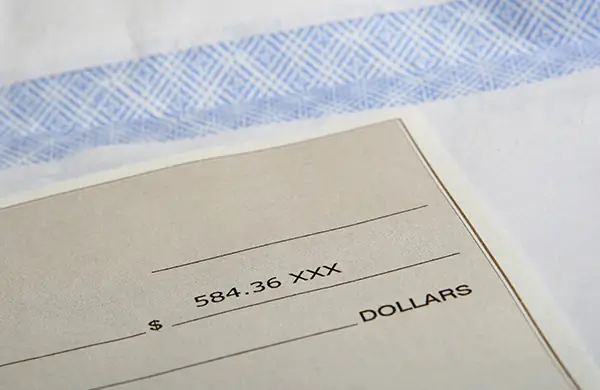California Prevailing Wage Lawyer
What Is Prevailing Wage?
 The California prevailing wage statutes are found in California Labor Code 1720-1861 and Title VIII of the California Code of Regulations Section 16000-16403.
The California prevailing wage statutes are found in California Labor Code 1720-1861 and Title VIII of the California Code of Regulations Section 16000-16403.
The Federal prevailing wage statute is found at 40 U.S.C 3142 onward.
For contractors and subcontractors prevailing wage is:
- a record keeping nightmare
- it requires contractors to pay unreasonably high wages that make it nearly impossible for the contractor to earn a profit on competitively bid contracts
FOR EMPLOYEE REPRESENTATION
CALL OUR EXPERIENCED PREVAILING WAGE LAWYERS AT (818) 783-7300.
When is a contractor required to paying employees prevailing wage?
In any public works contracts of $1,000 or more prevailing wage must be paid to workers on the contract employed by the private contractors and subcontractors supplying labor. Public works contracts are defined as construction, altercation, demolition, installation or repair work, design, installation, and preconstruction work done under contract and paid for in whole or in part out of public funds EXCEPT work done directly by a public utility company, California Labor Code Section 1720. However, work done for irrigation, utility, reclamation, and improvement districts are covered. The laying of carpet and construction cleanup is also covered. Thus, the coverage of what constitutes a public works contract for which prevailing wage must be paid is not limited to trades in which construction licenses are issued.
 WE ADVANCE COURT COST
WE ADVANCE COURT COSTALL CASES ARE TAKEN ON CONTINGENCY
WE ARE ONLY PAID IF WE WIN!
Contact a Prevailing Wage Lawyer
Call (818) 783-7300
We handle all cases on a contingency fee basis with no upfront costs
Under O.G. Sansone v. Dept. of Transportation, 55 Cal.App.3d 434, 458 (1976) material suppliers are exempt from having to pay prevailing wage if they meet four requirements:
- The materials must come from a supplier who is in the business of selling supplies to the general public
- the plant where the supplies are purchased must not be established specially for the particular contract
- the materials supply plant must not be located at the site of the work
- the delivery of the materials must not be an integrated aspect of and functionally related to the public work
While a supplier of sheet metal may be exempt if all they do is drop the shipment off, they are not exempt if their workers install the sheet metal. However, it is an unsettled court or Director of Industrial Relations question whether the time hauling materials to the prevailing wage site must be compensated at prevailing wage. Although O.G. Sansone has not been overturned in thirty-eight years, the California Supreme Court has never spoken on this issue of exemption from what is supposed to be a broad act.
Contractors and subcontractors who must pay workers prevailing wage include subcontractors, licensees, representatives, agents, and officers. Query: Could the owner of a construction firm be defined as an, “Officer?” Could an attempt be made to enforce prevailing wage obligations against a representative of a subcontractor, especially if the representative converted the difference between what the worker was paid and what he should have been paid on a prevailing wage job? The Plaintiffs labor bar, the class action bar, and the Department of Industrial Relations are each aggressive in seeking means to hold individuals liable for Labor Code violations and collect against individuals in the event corporate employers are not solvent. In addition, the California Labor Code allows the awarding body of the contract to suspend payments due to nonpayment of prevailing wages, and otherwise collect the prevailing wages from the contractor.
A contractor’s responsibility to pay prevailing wages under California Labor Code Section 1774 is not an obligation they should attempt to get around. There are at least four means by which a violation will cause the contractor to pay out the money that should have been paid out as prevailing wages. There are also many penalties employees and the Labor Commission can collect for violations of prevailing rate payments. Finally, unsuccessful second lowest bidders may sue prevailing wage violators under California Labor Code Section 1750. There is a presumption the second lowest bidder was not awarded the bid because the violator was able to undercut the second lowest bidder due to their failures to pay prevailing wage.
 Failing to pay prevailing wage also leads to extensive penalties under California Labor Code Section 1775. These penalties include up to a $200 a day forfeiture of due money per improperly compensated worker on the prevailing wage job. However, the fine can go down to as little as $40 per day per wrongly paid worker. A lessening of the fine is appropriate if the mistake in payment was made in good faith and promptly corrected when brought to the attention of the contractor or subcontractor. Willful failures equal $120 a day fines per worker. Some might contend the penalty scheme is unfair because a contractor assessed violations within the last three years is liable for a maximum forfeiture of $80 per day per worker. These fines add up quickly. A five man crew could subject the contractor to fines of $200-$1,000 a day.
Failing to pay prevailing wage also leads to extensive penalties under California Labor Code Section 1775. These penalties include up to a $200 a day forfeiture of due money per improperly compensated worker on the prevailing wage job. However, the fine can go down to as little as $40 per day per wrongly paid worker. A lessening of the fine is appropriate if the mistake in payment was made in good faith and promptly corrected when brought to the attention of the contractor or subcontractor. Willful failures equal $120 a day fines per worker. Some might contend the penalty scheme is unfair because a contractor assessed violations within the last three years is liable for a maximum forfeiture of $80 per day per worker. These fines add up quickly. A five man crew could subject the contractor to fines of $200-$1,000 a day.
 WE ADVANCE COURT COST
WE ADVANCE COURT COSTALL CASES ARE TAKEN ON CONTINGENCY
WE ARE ONLY PAID IF WE WIN!
Contact a Prevailing Wage Lawyer
Call (818) 783-7300
We handle all cases on a contingency fee basis with no upfront costs
How is it determined whether the construction project is a public works contract?
Public works contracts are those funded in whole or part by the payment of money or the equivalent of money by the state or a political subdivision. This money may come from construction bonds, or be loaned. Examples of political subdivisions include: airports, fire stations, local school districts, police stations, roads, the California State University System, and the California Community College System.
There is some dispute about whether contracts for the University of California (otherwise known as the Regents) are not subject to prevailing wage requirements. Some argue the Regents may maintain their own system of government under the California Constitution much like a charter city can. Others argue Regents of University of California v. Aubry, 42 Cal.App.4th579 (2nd App. Dist. 1996) held UCLA was exempt during the construction of student housing. One interpretation of this case is it largely turned on the fact the money for the construction project did not come from public funds, but was borrowed money from a private bank. However, the 2nd Appellate District commented the building of housing was a core educational function controlled by the Education Code and California Constitution. Division of Labor Standards Enforcement v. Ericcson, 221 Cal.App.3d 114 (4th App. Dist. 1990) came to a different conclusion and concluded telephone wiring done at the University of California San Diego was subject to prevailing wage.
Assume prevailing wage is due if the construction project involves a courthouse, highway, library, or prison. County and state buildings are always public works projects unless the city is a charter. Unless a city is a charter city, work done for a city is a public works contract.
Privately owned property is subject to prevailing wage if upon completion of the construction project 50% or more of it will be leased to the state or a political subdivision. This must be known at the time of construction because there is either a lease, or the government has given specifications about how they want the property to be designed or built.
Low to moderate income affordable housing projects paid solely through money from the Low and Moderate Income Housing Fund established by California Health and Safety Code Section 33334.2 or 33334.3, according to California Labor Code Section 1720©(4), are not supposed to constitute projects paid for in whole or part through public funds. Projects merely subject to tax credits are also supposed to be exempt.
There are more unusual exceptions that apply to self-help housing projects, or homeless housing found in California Labor Code Section 1720(6).
Private residential projects built on private land are subject to prevailing wage if the project is built pursuant to an agreement with a state agency, redevelopment, or local public housing authority. Query: Is a new residential subdivision subject to prevailing wage if it is built in agreement with the Coastal Commission e.g. Seabridge/Westport Marina in Oxnard between 2002-2009 because the housing development abuts a new waterway flowing into the Pacific Ocean?
In gray areas the Department of Industrial Relations will make determinations whether a specific construction project is subject to prevailing wage. There are many examples during the last ten years in which prudent developers, with the help of law firms, made such inquiries to the Department of Industrial Relations. If you wish to research opinion letters from the Department of Industrial Relations when such requests were made, see: https://dir.ca.gov/OPRL/PWDecision.asp. Many of these examples involve senior housing projects built by private developers utilizing government funding. Other common examples include redevelopment districts.
Per Diem Wage Rates
The Director of the Department of Industrial Relations determines general prevailing rates of per diem wages. Contractors and subcontractors do not determine the prevailing rates for jobs. Per diem rates are supposed to be the hourly rate the majority of workers in the locality of the contact earn, California Labor Code Section 1773.9. Although prevailing rates are supposed to be based on per diem wages for work of similar character in the locality where the public work is to be performed. However, most contractors and workers believe prevailing rates are far higher than would be earned on non-prevailing wage contracts.
In the calls for bids from the awarding body, the prevailing rates will be disclosed. Otherwise the prevailing rates must be available for inspection at the awarding body’s office. Contractors must read all portions of the calls for bid and make sure they understand what the prevailing rate will be before getting themselves into contracts they cannot profit on.
Awarding bodies are responsible for obtaining the prevailing rate for the job from the Department of Industrial Relations. In determining rates, the Director of the Department of Industrial Relations may choose to adopt the rates specified in collective bargaining agreements. Has anybody had experience with rates in collective bargaining agreements being less than the rates that might otherwise be imposed on a job?
Rates are based upon the craft worked. Prevailing rate contracts are subject to holiday pay. If the workers are not part of a collective bargaining unit, the holidays upon which prevailing rates shall be paid can be found in California Government Code Section 6700.
Although the Department of Industrial Relations may establish a per diem rate, monetary subtractions from that rate may be made from the worker’s pay and put into:
- health and welfare
- pension
- vacation
- travel
- subsistence
- apprenticeship or other training programs
- workers protection and assistance programs
- industrial advancement and collective bargain agreements administrative fees
- other purposes similar to those specified in 1-8
This diversion of funds is ripe for employer abuse, and California Labor Code Section 226 violations on paystubs. If these diversions are being made they must be correctly noted on employee paystubs, or California Labor Code Section 226 violations will occur.
Employer contributions that have the effect of lowering taxable wages is permissible if: a) the increased employer payment is made pursuant to criteria set forth in a collective bargaining agreement; b) the increase employer payment of hourly, straight time, and overtime pay combined are no less than the general prevailing rate of per diem wages; c) the employer payment contribution is irrevocable unless made in error, California Labor Code Section 1773.8.
Employer payments must be irrevocably made to third party trustees pursuant to a plan, fund, or program. This money is not to be borrowed or temporarily used by the employer. Again, contractors must be warned to avoid this temptation in the midst of an increasingly unprofitable contract they do not wish to pull out of and breach, but wish they could.
There are many specific rules about diverting payments under California Labor Code Section 1773.1 which has been amended several times in the last fifteen years. The requirements are different if a collective bargaining agreement exists. There are also prohibitions about granting credits against state or federally mandated benefits.
Many contractors are conflicted by their motivation to win the contract by being the lowest bidder, and then to profit from the contract while paying higher wages than they would pay on private jobs. In a contract in which the contractor is likely to have a small profit margin to begin with, there is incredible stress and motive to reduce labor costs. As a plaintiff’s lawyer, the author of this article has seen considerable prevailing wage abuses amongst employers of 20-200 employees. Their commitment to honor prevailing wage obligations may mean bankruptcy or financial ruination. It may also mean an inability to continue on with their existing business which primarily involves prevailing wage work.
Failing to properly pay prevailing wages begins a downward spiral in which at a minimum private lawsuits are brought by employees for prevailing wage violations. The mere fact that valued, skilled workers are bringing these lawsuits and isolating themselves from working for the contractor means a loss of technical assets to the contractor. Because prevailing rates are so high, and the violatory practice is likely to have affected all of the employees on the public works contract the damages for prevailing wage lawsuits can be devastating.
Contractors Must Accurately Abide By Craft Specification

Prevailing rate contracts may specify appropriate staffing levels. For instance, the contract may specific ratios between apprentices and journeymen. Contractors who deviate from the specified ratios of the awarding agency are supposed to notify the Division of Labor Standards Enforcement. Orally informing the public entity where the work is being done is not sufficient. Moreover, obtaining permission to deviate from the public entity where the work is being done is not appropriate unless the DLSE assents.
This is one of many examples of the need for contractors to rigorously follow the contract, provide the called for labor, and not falsely report classifications of labor are working on the contract when they are not. The same goes for billing. General laborers should not be billed as if they were a higher paid specialty craft such as a plumber when they did not perform that type of work.
Payroll Certifications
Each contractor and subcontractor must keep accurate payroll records showing the name, address, social security number, number of straight and overtime hours worked, and work classification for each worker per week, California Labor Code Section 1776. These payroll records must contain a certification stating the employer complied with the requirements of California Labor Code Sections 1771, 1811, and 1815.
Certified payroll records are supposed to be available for inspection or furnished to the employee or authorized representative on request. Likewise, the records must be available for public inspection to the Division of Labor Standards Enforcement, and even the general public through that organization.
Certified payrolls must be done on forms provided by the DLSE. Please see the examples provided in this handout. Contractors have ten (10) days to comply with requests for copies of their certified payroll records. Employers are liable for a $100 a fine until the contractor complies.
Contractors and subcontracts that create false payroll certifications, or otherwise willfully violate any prevailing wage law are liable for a misdemeanor.
False certified payrolls present multiple issues in employee lawsuits. California Labor Code Section 1198 requires employers to allow employees to inspect their personnel files within a thirty (30) day time frame. Employers that created false payroll may be reluctant to allow their employees to inspect either their personnel files or certified payrolls pertaining to them. First the employer fails to allow an inspection of the personnel file within thirty days, and subjects themselves to a $750 California Labor Code Section 1198.5 fine. Second, the employer is subject to fines under California Labor Code Section 1776 for failing to produce certified payroll records in a shorter ten day period they may confuse with the thirty day period under for California Labor Code Section 1198.5.
Creating false certified payroll records also leads to additional liability including violations of the California False Claims Act (California Government Code Section 12650), statutory fraud or deceit under California Civil Code Sections 1572, 1709-1710. Obtaining money under false pretenses is a crime and violates California Penal Code 532. The conduct also violates California Business and Professions Code Section 17200. Lowest bidders can use Section 17200 to bring a lawsuit against the non-compliant contractor. Employees can use all of these code sections, as well as provisions in the California Labor Code relating to prevailing wage to make claims of wrongful termination in violation of public policy, or California Labor Code Section 1102.5 retaliation actions.
Believe it or not, this author has handled numerous employee lawsuits in which false payroll certifications were submitted. Payroll falsifications often involve representations employees of a craft are performing the services, or the proper prevailing wage has been paid. In these situations it is not uncommon for the employer to never have paid the proper prevailing wage to any of their workers on the contract.
Contractors and subcontractors awarded a public works contract should consider the award a privilege bestowed by the government and take their responsibilities under California prevailing wage law seriously. The consequences of non-compliance are grave and expensive.
- [1] This is an obvious intention not include makeshift onsite cement mixing operations consisting of sand piles, aggregate, and mixing machinery.
- [2] Political subdivisions are defined under California Labor Code Section 1721 as any county, city, district, public housing authority, or public agency of the state, and assessment or improvements districts.
- [3] The high hourly wages determine the dollar amount of overtime and double time liability. California Labor Code Section 203 penalties are also based upon the employee’s wage for 30 days. Inventive employee lawyers may also include unpaid wages such as meal break violations equal to one hour of pay, or rest break violations in their lawsuit against the prevailing wage employer.
Firm head Karl Gerber is an experienced Prevailing wage labor advisor. He has written and lectured on California Prevailing wage law. All Prevailing wage cases are taken on contingency. Our employee clients do not pay any upfront cost or fees. We are only paid when and if we win. We have offices in Los Angeles, Sherman Oaks, Gardena, Tustin, Oxnard, Riverside, Massachusetts, and Bakersfield.
Call (818) 783-7300 to speak to one of our experienced labor lawyers.

